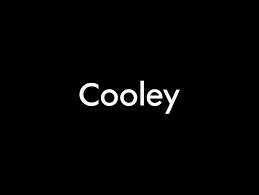New EU ESG Rules Likely to Affect Many US Companies
Note: this is a Dec. 12, 2022 update of an article first published on Dec. 5, 2022.  New Environmental, Social, Governance (ESG) reporting requirements in the European Union (EU) will have a significant effect on nonfinancial reporting, even for US companies, according to recent report in the Harvard Law School Forum on Corporate Governance. The new disclosure requirements will be the topic of an Enterprise Engagement Alliance YouTube show on Stakeholder Capitalism on Tue., Dec. 13 at 1 pm ET US, with Leo S. Strine, former Chief Justice of the Delaware Supreme Court and an early proponent of Public Benefits Corporation statutes, and Larry Beeferman a Fellow at the Labor and Work Life program at Harvard Law School. Click here for more information and to register. This article provides additional details and links to the four standards for employees, employees in the supply chain; consumers and distribution partners, and communities, including the requirement to disclose employee turnover rates.
New Environmental, Social, Governance (ESG) reporting requirements in the European Union (EU) will have a significant effect on nonfinancial reporting, even for US companies, according to recent report in the Harvard Law School Forum on Corporate Governance. The new disclosure requirements will be the topic of an Enterprise Engagement Alliance YouTube show on Stakeholder Capitalism on Tue., Dec. 13 at 1 pm ET US, with Leo S. Strine, former Chief Justice of the Delaware Supreme Court and an early proponent of Public Benefits Corporation statutes, and Larry Beeferman a Fellow at the Labor and Work Life program at Harvard Law School. Click here for more information and to register. This article provides additional details and links to the four standards for employees, employees in the supply chain; consumers and distribution partners, and communities, including the requirement to disclose employee turnover rates.
By
Bruce Bolger
Attorneys Urge: It’s Time to Begin Preparations Now
Human Capital Disclosure Requirements

If you work for a public or large company that does business in the European Union, or if your company does business with such a company, expect to hear about questionnaires from your boards, attorneys, or clients on your environment, human capital, and governance practices. If you are an investor, consumer, employee, supply chain or distribution partner, community member, or otherwise engaged with such an organization, you're about ready to be able to access surprisingly detailed information on how they manage their stakeholder relationships, including their rates of employee turnover.
The
new rules take affect in 2023 with reporting to begin in 2024 for the previous year. They apply to all organizations that do business in or with EU countries with more than 250 employees, and or at least 40 million euros in annual sales or a balance sheet of 20 million euros. More abridged disclosure requirements are anticipated for smaller companies for 2026. Pressure for the disclosure rules reportedly came from investors and other stakeholders seeking a more comparable, transparent, and standardized approach to human capital standards that include all stakeholders.
For details on the new regulations related to the "S" of ESG, click on:
Consumers; Own workers; Workers in the value chain; Communities.
It is difficult to estimate how many US organizations this may affect, since the regulations will include: most organizations with 250 or more employees in Europe and soon even a smaller number yet to be determined; any size organization that does business with a European company in the US, or a US company that is subject to the disclosure rules. According to a report published by the
US Chamber of Commerce, 64% of global investment in the US comes from Europe; there is about $750 billion in trade between Europe and the US; and Europe-owned companies account for over half of US exports. There are an estimated
23 million companies in the EU, of which over
135,000 have multinational operations. ESM has not yet found an estimate of US companies with offices in the EU nor of an estimate of how many do business with organizations covered by the new regulations.
The new regulations mean that starting in 2024, investors, consumers, employees, supply chain and distribution partners, communities, lawyers, activists, recruiters, shareholders etc., will be able to access a free public web site to obtain highly detailed, standardized information not only on the composition and interests of the organization's stakeholders but; how they treat them, and which metrics they use and how. Such information will be in a format easily comparable with claims made in marketing, recruitment, investment decisions, or other forms of engagement with a firm, as well as in a manner comparable with the reports of other organizations.

New environmental, social and governance (ESG) reporting requirements in the European Union will require ESG reporting of companies with 250 or more employees “on a level never seen before,” according to the article by attorneys
Emma Bichet,
Jack Eastwood, and
Michael Mencher of
Cooley LLP in a recent edition of

the
Harvard Law School Forum on Corporate Governance. The new rules require disclosures on all stakeholders, including employees, supply chain and distribution partner employees, communities, and consumers and requires the reporting of specific metrics, in many cases using the operative term "shall," known to attorneys as a requirement not a nice-to-have.
According to the report, the new rules “will capture a whole host of companies that previously were not subject to mandatory nonfinancial reporting requirements, including public and private non-EU companies that meet certain EU-presence thresholds. For US issuers, the new EU rules will result in mandatory reporting on a broader set of ESG topics than those required under current and proposed Securities and Exchange Commission (SEC) rules.”
The attorneys point out that “Even if your business is not covered by the new reporting requirements, we anticipate that you will feel the impact of these requirements if your business is part of the value chain of an entity that is required to report. We expect to see companies sending and receiving ESG questionnaires to gather the data necessary for their ESG reports.”
These new rules come at an interesting time, considering that the SEC formally began a process to draft more detailed disclosure rules for human capital that many expected to be published no later than early 2022. There is little doubt that the SEC analysts charged with drafting these new regulations were aware of the EU efforts, as the process has been regularly documented following EU procedures. It is not known if the EU model is under consideration by the SEC as a matter of simplifying disclosure requirements for multinational organizations.
It is also notable that the EU standards largely align with the so-called
Annex SL framework of ISO (the International Organization for Standardization), created in 2012 to ensure that all ISO business process standards are led by the CEO and address the needs of all stakeholders so that all levels of management are on the same page with the same outcomes in mind to ensure coordinated action.
The new rules also put some companies in a potential bind, as they run counter to new mandates coming from Florida, Texas, Louisiana and other states withdrawing funds from ESG oriented investment companies and putting pressure on pension funds and others doing business with their states to do the same. In fact, some companies are receiving requests for proposals from organizations in such states requiring that the company submitting its proposal agree state that it does not participate in any ESG-oriented activities.
Stakeholder capitalism is a business practice that originated in the early 1970s; became established as an area of study in business and administration during the 1980s, and has become a bedrock of principles in the Total Quality Management practices and ISO 9000/9001 standards. These practices are widely credited with having significantly improved quality in manufacturing by promoting a strategic, CEO-led approach addressing the input and needs of all interested parties. See
Stakeholder Capitalism primer for the only known history of the field. None of the none originators or actual academic or professional advocates of this strategy have spoken of the need to address the interests of disinterested parties, as has been alleged by opponents of the
Business Roundtable decision in 2019 to redefine the corporate charter to include the interests of all stakeholders without defining what this actually means or pursuing any attempt to do so.
Attorneys Urge: It’s Time to Begin Preparations Now
The rules will require organizations to account for their activities in 2023, even though the reports will not be published until 2024. Attorneys knowledgable about these rules expect that “preparation for reporting under the new EU rules will be an important topic for fall (2022) board meetings and nominating and corporate governance committees.” Their article provides guidance on how organizations can begin to prepare, which includes staying up to date with more developments, focusing on board oversight, aligning reporting strategies, and establishing internal controls. Obviously, the most important action is to ensure that there is a formal process in place or being undertaken so that these disclosures demonstrate a serious approach to creating value through people.
As can easily be seen by reviewing the links below on workforce, supply chain, customer and distribution partner, and community engagement, the new rules go well beyond current US Securities & Exchange Commission disclosure requirements, which only include very general information considered material by management, with no metrics.
Human Capital Disclosure Requirements
In addition to environmental disclosures, the new
European Sustainability Reporting Standards (ESRS) include the following four detailed disclosures about all stakeholders, including practices used to engage with them, address multiple key issues, and metrics.
The organization's own workforce: The report must enable readers to understand how the undertaking affects the company’s own workforce by covering working conditions, access to equal opportunities and other work-related rights, work-life balance, diversity, health and safey, social dialog, professional development, people with disabilities, along with detailed disclosures on workforce demographics.
Workers in the value chain: The report must set out how the company affects workers in its value chain through its own operations and its upstream and downstream value chain (including its products and services, its business relationships, and its supply chain). This includes disclosures on processes for engaging with such workers, channels through which such workers can raise concerns, targets related to managing material impacts on such workers, and remediation of material impacts on such workers, among others, along with the same types of disclosures required of a company's own workforce.
Affected communities: The report must enable readers to understand how the undertaking affects local communities through the company’s own operations and its upstream and downstream value chain (including its products and services, its business relationships, and its supply chain), any actions taken, and how the undertaking manages risks and opportunities relating to impacts and dependencies on affected communities.
Consumers and end users: The report must set out policies and targets that address the management of the material impacts its products and services have on consumers and end users – including impacts to a consumers’ privacy or health, processes for consumer and end-user engagement concerning actual and potential impacts, mechanisms through which consumers and end users can raise concerns, and approaches to mitigating material risks and remediating actual impacts. This includes claims made in marketing and reputational risk for failure to deliver those claims, including communications and even product assembly instructions.
Dr. Heiko Mauterer, Board Member and Senior Advisor for the German-Based
Four C Group AG, a human capital management and reporting firm, created a slide comparing the workforce disclosure requirements of the new ESRS standard for workforce reporting. The ESRS standards not only rival the voluntary
ISO 30414 human capital standard in detail, they also encompass the workforces of supply chain and distribution partners, as well as standards for communities and consumers, which are mostly covered in the
ISO 10018 people engagement standard.
.jpg)
 Profit From the “S” of Environmental, Social, Governance (ESG)
Profit From the “S” of Environmental, Social, Governance (ESG)
Through education, media, business development, advisory services, and outreach, the Enterprise Engagement Alliance supports boards, business analysts, the C-suite, management in finance, marketing, sales, human resources and operations, etc., educators, students and engagement solution providers seeking a competitive advantage by implementing a strategic and systematic approach to stakeholder engagement across the enterprise. Click here for details on all EEA and RRN media services.
1. Professional Education on Stakeholder Management and Total Rewards
-
 Become part of the EEA as an individual, corporation, or solution provider to gain access to valuable learning, thought leadership, and marketing resources.
Become part of the EEA as an individual, corporation, or solution provider to gain access to valuable learning, thought leadership, and marketing resources.
-
The only education and certification program focusing on Stakeholder Engagement and Human Capital metrics and reporting, featuring seven members-only training videos that provide preparation for certification in Enterprise Engagement.
-
EEA books: Paid EEA participants receive Enterprise Engagement for CEOs: The Little Blue Book for People-Centric Capitalists, a quick implementation guide for CEOs; Enterprise Engagement: The Roadmap 5th Edition implementation guide; a comprehensive textbook for practitioners, academics, and students, plus four books on theory and implementation from leaders in Stakeholder Management, Finance, Human Capital Management, and Culture.
2. Media
3. Fully Integrated Business Development for Engagement and Total Rewards
Strategic Business Development for Stakeholder Management and Total Rewards solution providers, including Integrated blog, social media, and e-newsletter campaigns managed by content marketing experts.
4. Advisory Services for Organizations
Stakeholder Management Business Plans; Human Capital Management, Metrics, and Reporting for organizations, including ISO human capital certifications, and services for solution providers.
5. Outreach in the US and Around the World on Stakeholder Management and Total Rewards
The EEA promotes a strategic approach to people management and total rewards through its e-newsletters, web sites, and social media reaching 20,000 professionals a month and through other activities, such as:
 New Environmental, Social, Governance (ESG) reporting requirements in the European Union (EU) will have a significant effect on nonfinancial reporting, even for US companies, according to recent report in the Harvard Law School Forum on Corporate Governance. The new disclosure requirements will be the topic of an Enterprise Engagement Alliance YouTube show on Stakeholder Capitalism on Tue., Dec. 13 at 1 pm ET US, with Leo S. Strine, former Chief Justice of the Delaware Supreme Court and an early proponent of Public Benefits Corporation statutes, and Larry Beeferman a Fellow at the Labor and Work Life program at Harvard Law School. Click here for more information and to register. This article provides additional details and links to the four standards for employees, employees in the supply chain; consumers and distribution partners, and communities, including the requirement to disclose employee turnover rates.
New Environmental, Social, Governance (ESG) reporting requirements in the European Union (EU) will have a significant effect on nonfinancial reporting, even for US companies, according to recent report in the Harvard Law School Forum on Corporate Governance. The new disclosure requirements will be the topic of an Enterprise Engagement Alliance YouTube show on Stakeholder Capitalism on Tue., Dec. 13 at 1 pm ET US, with Leo S. Strine, former Chief Justice of the Delaware Supreme Court and an early proponent of Public Benefits Corporation statutes, and Larry Beeferman a Fellow at the Labor and Work Life program at Harvard Law School. Click here for more information and to register. This article provides additional details and links to the four standards for employees, employees in the supply chain; consumers and distribution partners, and communities, including the requirement to disclose employee turnover rates. If you work for a public or large company that does business in the European Union, or if your company does business with such a company, expect to hear about questionnaires from your boards, attorneys, or clients on your environment, human capital, and governance practices. If you are an investor, consumer, employee, supply chain or distribution partner, community member, or otherwise engaged with such an organization, you're about ready to be able to access surprisingly detailed information on how they manage their stakeholder relationships, including their rates of employee turnover.
If you work for a public or large company that does business in the European Union, or if your company does business with such a company, expect to hear about questionnaires from your boards, attorneys, or clients on your environment, human capital, and governance practices. If you are an investor, consumer, employee, supply chain or distribution partner, community member, or otherwise engaged with such an organization, you're about ready to be able to access surprisingly detailed information on how they manage their stakeholder relationships, including their rates of employee turnover. New environmental, social and governance (ESG) reporting requirements in the European Union will require ESG reporting of companies with 250 or more employees “on a level never seen before,” according to the article by attorneys Emma Bichet, Jack Eastwood, and Michael Mencher of Cooley LLP in a recent edition of
New environmental, social and governance (ESG) reporting requirements in the European Union will require ESG reporting of companies with 250 or more employees “on a level never seen before,” according to the article by attorneys Emma Bichet, Jack Eastwood, and Michael Mencher of Cooley LLP in a recent edition of  the Harvard Law School Forum on Corporate Governance. The new rules require disclosures on all stakeholders, including employees, supply chain and distribution partner employees, communities, and consumers and requires the reporting of specific metrics, in many cases using the operative term "shall," known to attorneys as a requirement not a nice-to-have.
the Harvard Law School Forum on Corporate Governance. The new rules require disclosures on all stakeholders, including employees, supply chain and distribution partner employees, communities, and consumers and requires the reporting of specific metrics, in many cases using the operative term "shall," known to attorneys as a requirement not a nice-to-have. .jpg)
 Profit From the “S” of Environmental, Social, Governance (ESG)
Profit From the “S” of Environmental, Social, Governance (ESG) Become part of the EEA as an individual, corporation, or solution provider to gain access to valuable learning, thought leadership, and marketing resources.
Become part of the EEA as an individual, corporation, or solution provider to gain access to valuable learning, thought leadership, and marketing resources. ESM News Alert for the latest news. Subscribe here.
ESM News Alert for the latest news. Subscribe here.
